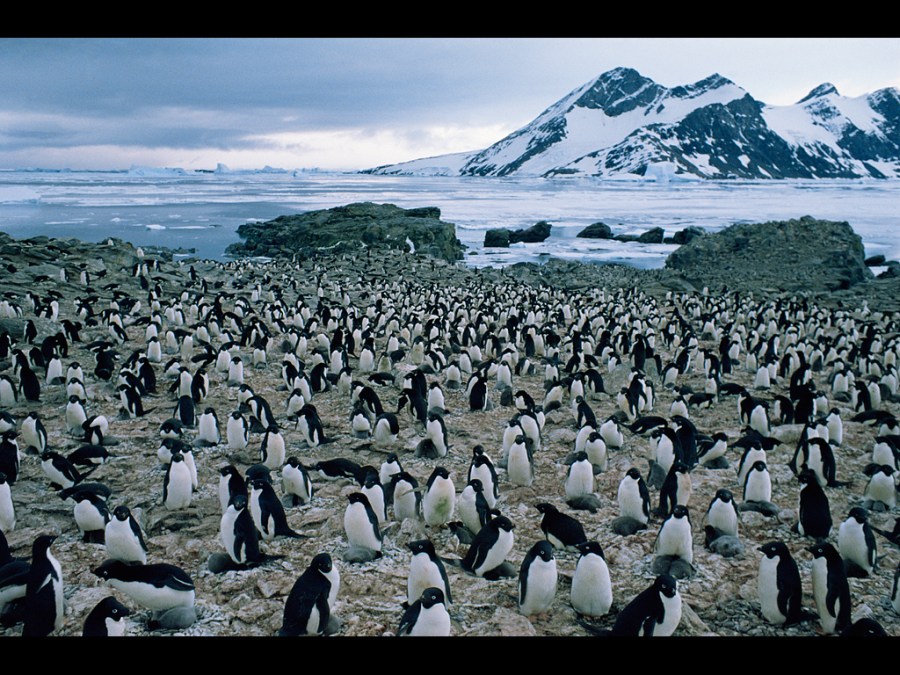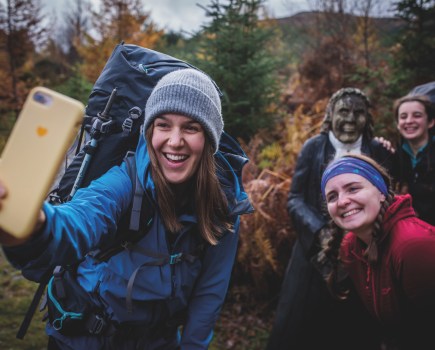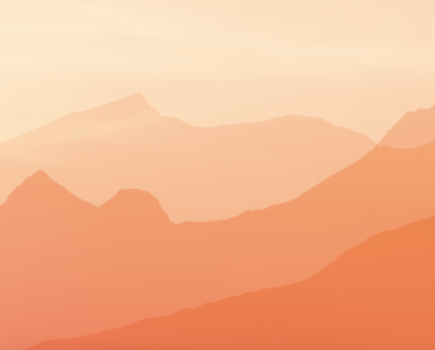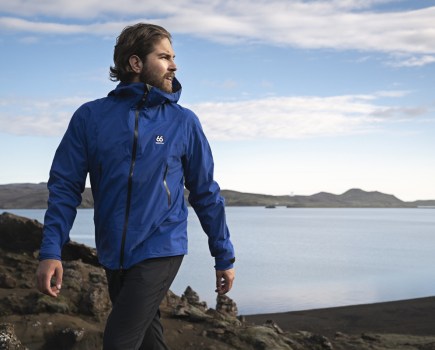Filming natural wonders for The BBC’s Blue Planet, Frozen Planet, Planet Earth and other major programmes, Doug Allan has the kind of job most of us could only dream about.
After 36 years of witnessing polar bears emerge from their slumber, emperor penguins seeing out storms and killer whales doing what they do best in Antarctica, Doug is about to embark on a U.K tour to share some tales from the wilderness. Chiara Bullen caught up with him to discuss the challenges of being a wildlife photographer, the impact of climate change and what we can expect to hear on the tour. His thoughts below.

A Weddell Seal and Pup
Every person in this industry has followed a different route into their career. I made a bit of a leap in the dark to make my start, but it paid off. At the end of the day, it’s your passion that leads you.
The biggest buzz come when animals recognise your presence, but they carry on behaving as normal. It’s a huge compliment, telling you that you’re not disturbing them or being seen as a threat.
On one occasion, a 50-ton humpback whale went to sleep under our boat while her calf played around me while I was in the water. What a privilege to be accepted and trusted like that.
I’ve never had a formal photography lesson in my life. I’m entirely self-taught, by watching, listening and learning from others. I started with movies when I was a base commander at Halley station with the British Antarctic Survey (BAS) in 1983. I had a 16mm camera and filmed a colony of emperor penguins through the winter. The footage was later used in a BBC series – that gave me my introduction to the industry.
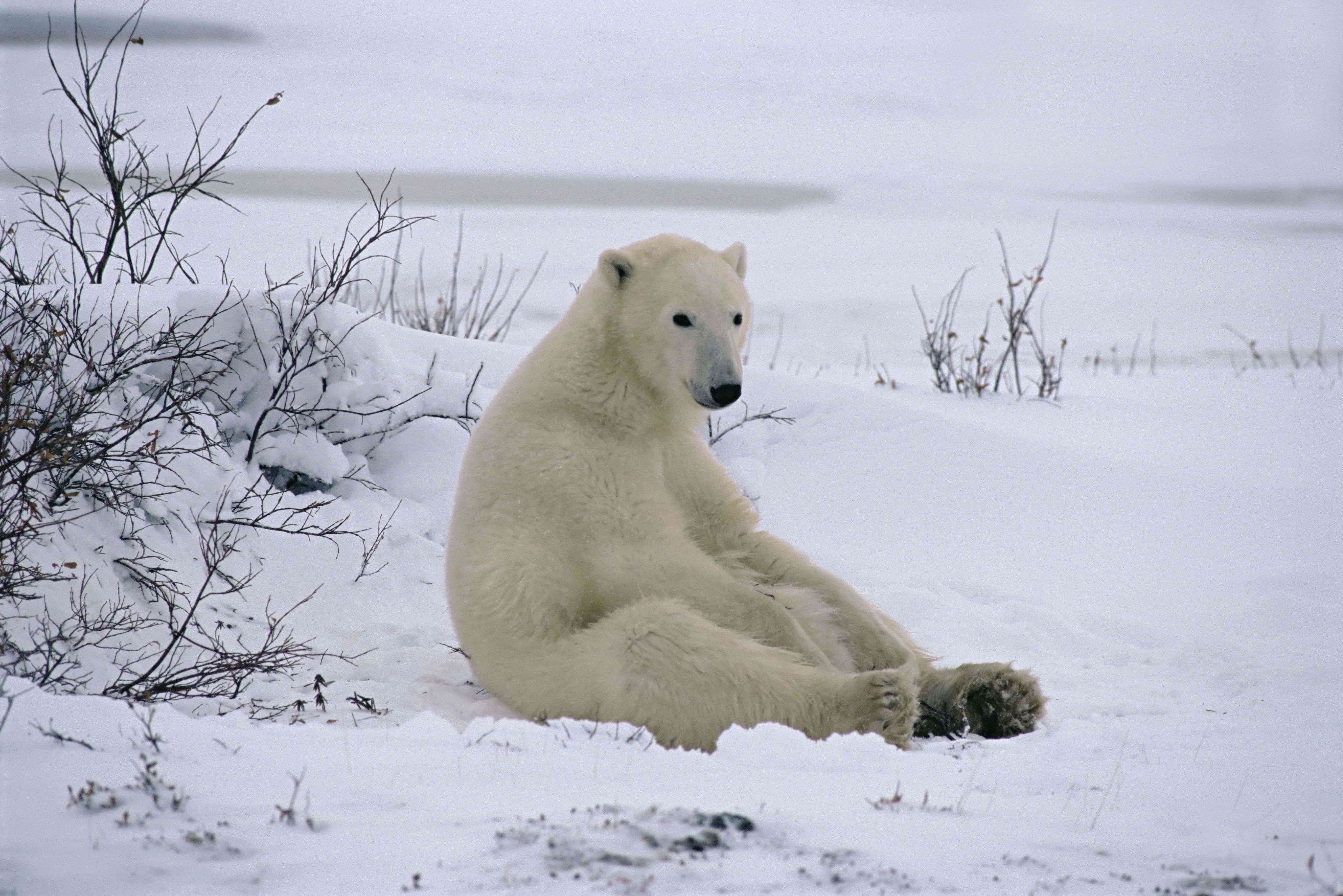
Young male Polar bear (Ursus maritimus) sits
in show, Churchill, Hudson Bay, Canada.
Polar environments are tough places to film. But I know my own limitations and how to recognise when to be extra careful. I can sense the onset of frostbite or hypothermia before they become dangerous. Some people are born with better blood circulation so they stay warmer and so can cope better than others. I guess I fall into that category.
This job does have a social cost. Filming is often unpredictable. Dates for shots can change at short notice, they can be extended or shortened depending on local weather. It’s hard to commit to family occasions like birthdays or anniversaries when you’re at the beck and call of nature.
I’ve been married twice. I suppose filming very often took precedence in many respects. While (I think) I always had a good relationship with my son (and my former wives now too!) I know I missed out on some of the everyday stuff. Sharing the responsibilities like helping with Liam’s homework or mixing with social events.
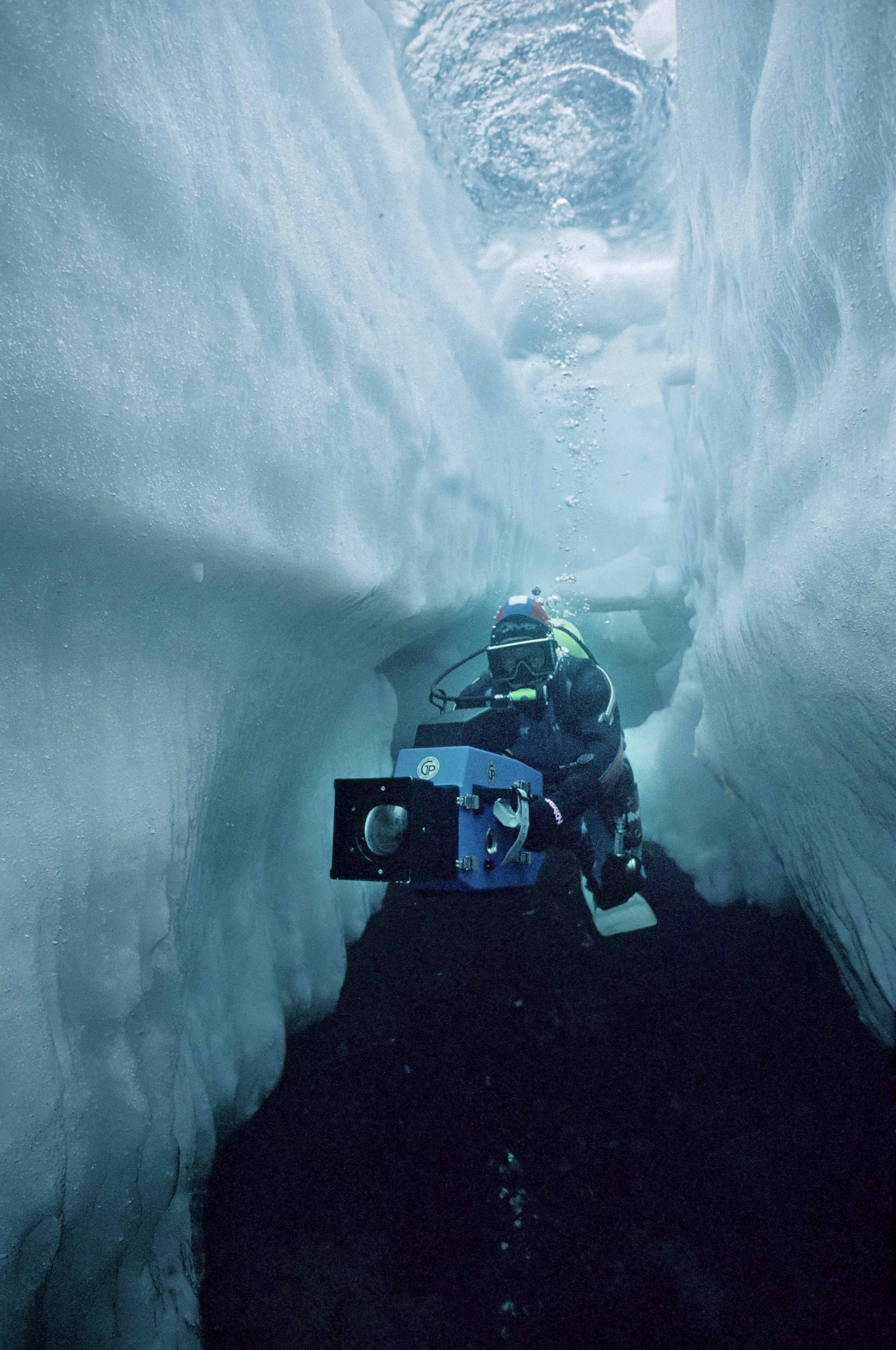
Doug Allan filming under sea ice in Lancaster Sound, Arctic Canada
Having worked so much in the poles, I’ve definitely noticed the effects of climate change – particularly in the Arctic. When I started filming there in 1988, I feel like that was the end of the ‘stable’ period on the ice. I worked with the local Inuit communities who could tell me where it would be safe to travel, and more relevantly when the sea ice would begin its spring break up. Now, the weather is much more unpredictable, and the rising temperature makes the sea ice much more unstable and dangerous.
It’s sad to see how this affects the wildlife. In 1992, we filmed a colony of Adélie penguins hatching their chicks on an island in Antarctica. I went back in 2008, and the penguin numbers had dropped by 80%. Scientists think that climate change had caused their food, the tiny shrimp crustaceans called krill, to move further away. It’s become too far for them to forage successfully for their chicks. Polar bears in the Arctic rely on the sea ice to hunt seals, but the ice is melting earlier in the spring. Summers with no ice mean hungrier, less healthy bears. Filming these animals is different than it used to be because their behaviours are changing as they try to adapt.
Follow your heart as well as your head to find your way into this line of work. You’ll need full on passion and commitment all the way through.
When I started 36 years ago, I was struck by the awesomeness of what I was seeing. But I’ve become increasingly concerned for the planet and what’s happening to it. My tour describes that change in perspective. There’ll be plenty of behind-the-scenes stories to tell but I also want to give people food for thought about what’s happening, and how they can help.
Tickets for Doug Allan Wild Images, Wild Life at theatres around the UK from 16 September are on sale now. Visit: dougallan.com
Photos: copyright dougallan.com

